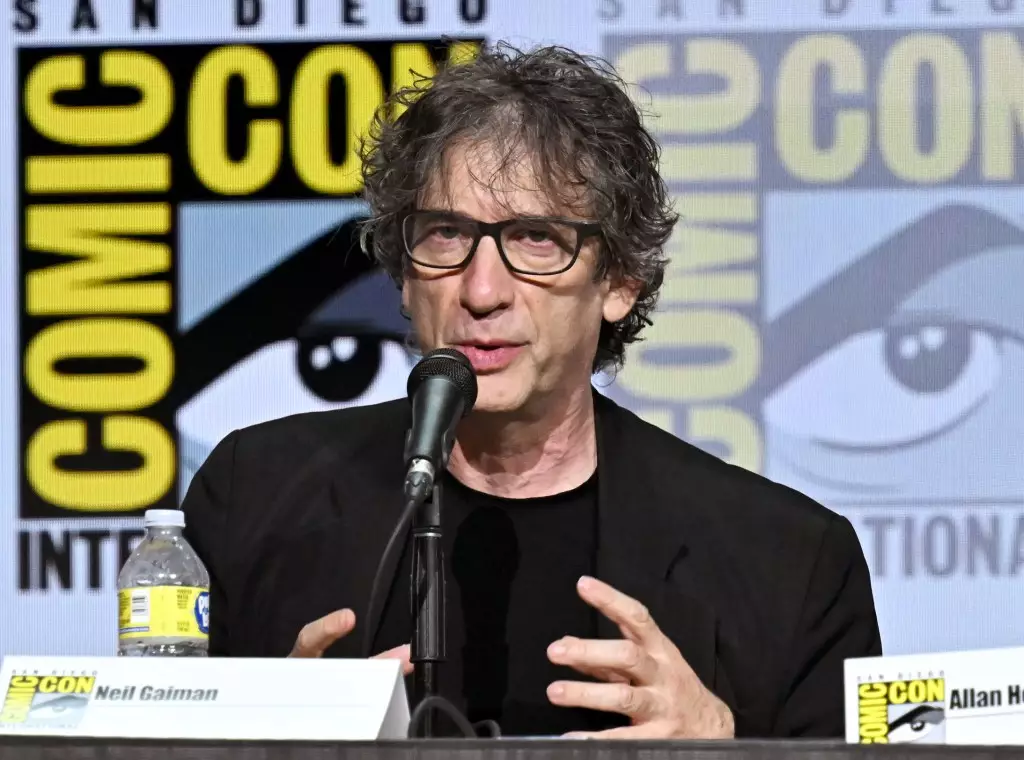The spotlight on sexual misconduct within the entertainment industry has resulted in many prominent figures facing serious repercussions. Neil Gaiman, known for his influential works such as *Coraline* and *The Sandman*, recently found himself embroiled in controversy after sexual assault allegations surfaced against him. As a result, Dark Horse Comics announced the cancellation of his *Anansi Boys* comic series. This situation not only highlights the weight of such allegations but also raises questions about accountability, the fragility of creative careers, and the ongoing conversation surrounding consent in the arts.
In a statement released on X, Dark Horse Comics affirmed its commitment to addressing the allegations against Gaiman, emphasizing that they would no longer publish any works associated with him. This swift action demonstrates the gravity with which even allegations—rather than confirmed misconduct—are treated in today’s artistic landscape. The reactions from publishers and industry leaders are increasingly cautious, often opting to sever ties with accused individuals to uphold their brand integrity and align with the societal demand for accountability. The cancellation of *Anansi Boys*, which includes plans for a comic series and collected volume, reflects a broader trend where companies must navigate the complex intersection of art, personal behavior, and public opinion.
The emergence of allegations often unfolds with harrowing accounts from multiple individuals. In Gaiman’s case, Tortoise Media compiled testimonies from four women, detailing their experiences with the author. The courage required to come forward about such sensitive issues cannot be overstated, and when multiple accounts arise, they often prompt an urgent response from both the media and the industry. This clustering of testimony can lead to a chilling effect, whereby creative entities may preemptively distance themselves from affiliated individuals to avoid backlash or public relations crises. It raises the question: how does one navigate their career amidst these turbulent waters of accusation and denial?
In an entry on his personal blog, Neil Gaiman sought to address the allegations directly, asserting his innocence while also expressing a nuanced understanding of his past actions. He describes moments of his life that align and conflict with the accounts presented against him, hinting at a deep self-reflection that many artists experiencing similar scrutiny often undergo. Gaiman acknowledged that he had not always been the best version of himself, admitting to being “emotionally unavailable” in relationships. However, he remained staunch in his insistence that he has never engaged in any non-consensual activity. This duality raises important questions: can one acknowledge personal shortcomings while still denying wrongdoing? What is the fine line between accountability and self-preservation in the face of serious allegations?
The fallout from the accusations hasn’t just affected Gaiman’s comic series. The acclaimed *Good Omens*, a co-creation with Terry Pratchett, will now wrap up with a single 90-minute special instead of a planned full third season. Gaiman voluntarily stepped back from his creative role, reflecting how closely interconnected the fates of creative projects and their creators often are. Similarly, production on the adaptation of *The Graveyard Book* was put on hold—an indication that Gaiman’s touch is no longer deemed beneficial for ongoing or upcoming productions, given the current climate of scrutiny.
As the industry grapples with issues of consent and misconduct, the implications for creators like Gaiman are profound. His reflections point to a pivotal moment where artists must confront the dual realities of their public personas and private actions. The future of Gaiman’s projects, including the anticipated second season of *The Sandman* on Netflix, hangs in the balance as industry players assess the landscape post-allegations. Moving forward, the challenges that arise from this situation will continue to influence the discourse on creative freedom, responsibility, and the risks faced by artists in a world increasingly focused on accountability and social justice.

